Is the thought of flying with your pet making you nervous? Here are 9 tips from pet owners and experienced travelers to help you and your pet have a safe and enjoyable flight.
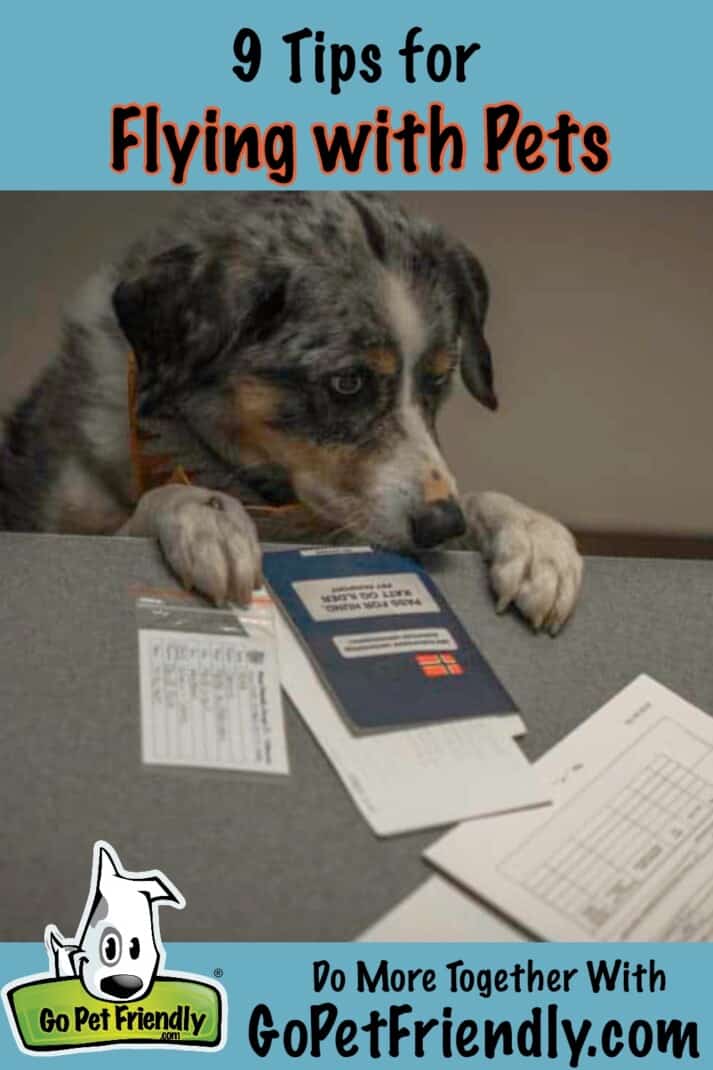
Flying With A Pet Doesn’t Have To Be Scary
If you’re considering with flying with a pet for the first time, chances are you feel uncertain at best. Arranging your pet’s reservation and getting all the required documents can be daunting.
And then there are the airline’s pet requirements, and concerns for your pet’s safety during the flight. Perhaps you’ve even considered driving to your destination instead! But if time is a factor, or you’re traveling to another part of the world, flying might be your only option.
If that’s the case, remember that millions of animals fly each year in the United States alone. We hear about the few tragedies and mishaps in the media, but the vast majority of pets traveling by air arrive safely.
Making sure your pet has a safe flying experience starts with you. Be sure to research the airline’s pet policy and record. And talk to staff before and during your flight to help calm your fears. By following the tips below, you will feel more prepared for your flight so you can both arrive a little less stressed.
READ MORE ⇒ US Airline Pet Policies
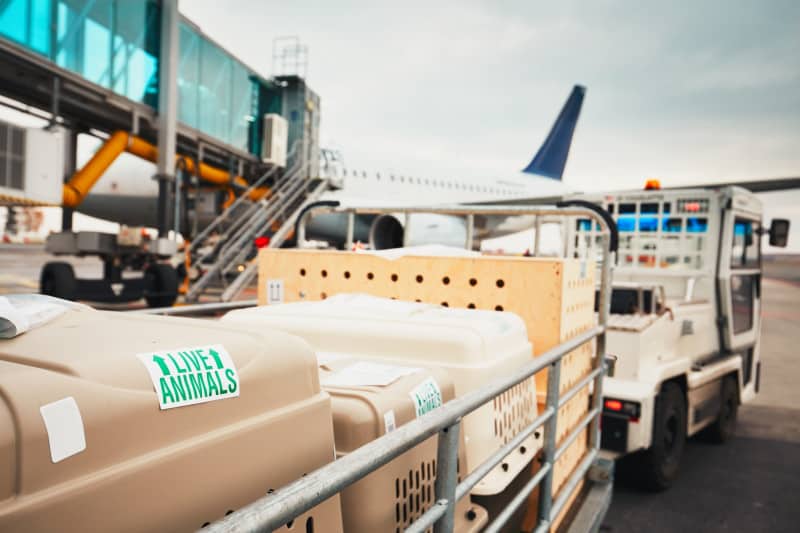
Tips For Flying With A Pet Safely
1. Talk To Your Vet
The first step when flying with a pet is to schedule an appointment with your veterinarian. You want to ensure that your pet is in good health to fly. If you get the go-ahead from your vet to travel, make a second appointment close to your date of departure. Then check with the airline and state veterinarian at your destination to determine what documents you’ll need. It’s not unusual for airlines to require a health certificate that’s issued within 10 days of your flight.
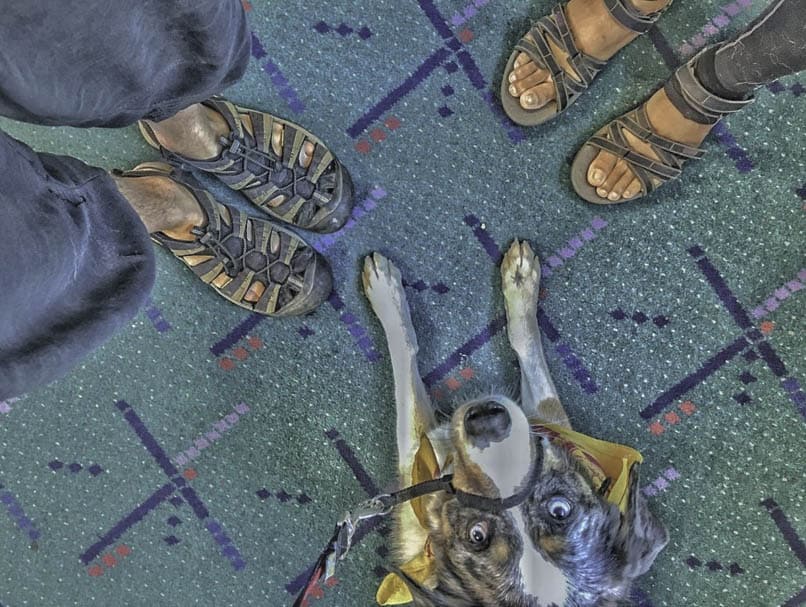
2. Make Sure Your Pet’s Breed Isn’t Restricted
Many airlines have breed restrictions for dog and cat breeds, limiting when Brachycephalic or “short-nosed” breeds like Boston terriers, boxers, and bulldogs, and others can fly. These restrictions are typically related to the weather and for your pet’s safety. Locations with extreme heat and cold are affected more than places with moderate temperatures.
Even during restricted periods, some airlines will allow you to fly with your short-nosed pet in a cabin. Of course then they fit within the size and weight guidelines. Always check with the airline before purchasing your ticket.
READ MORE ⇒ Crash-Tested Crates & Carriers Keep Pets Safe
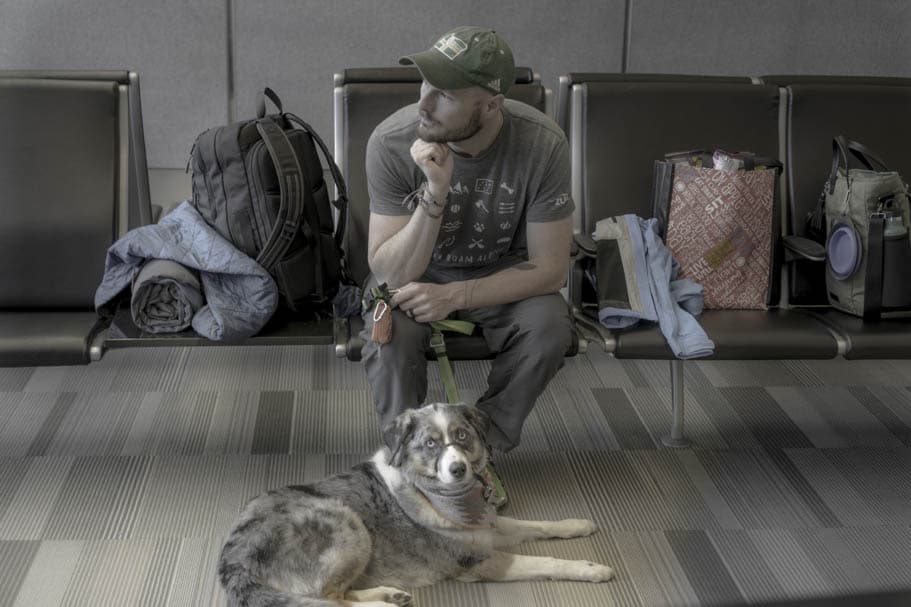
3. Book In Advance
Airlines allow a limited number of pets per flight, so book early to ensure you can fly when you choose. If your pet is flying in cargo or you’re traveling internationally, it’s especially important to make your reservations well in advance. The airline’s and destination’s requirements sometimes take months of preparation.
READ MORE ⇒ Hawaii’s Pet Travel Requirements
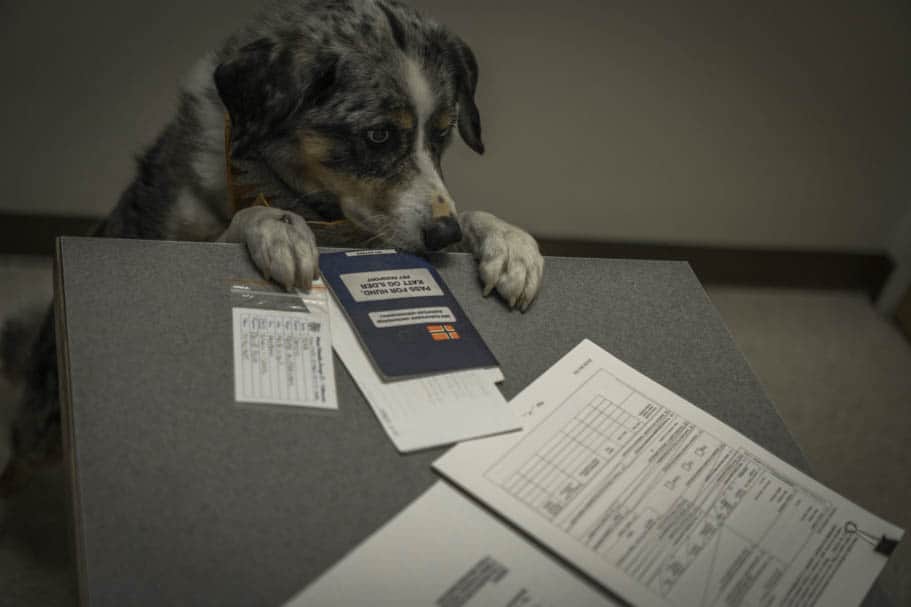
4. Acclimate Your Pet To The Kennel
If you want your pet to be as comfortable during the flight as possible, purchase your pet travel carrier well in advance and start teaching your pet it’s a wonderful place to hang out. Your goal is for your pet to think of the kennel as a den – a portable “safe space” where they can relax and know all is well.
To help your pet develop a positive association with the kennel, start by feed her in it for several weeks leading up to your flight. Put her bed and a few favorite toys inside to encourage her to play, sleep, and retreat inside.
Initially you’ll want to leave the door open, so your pet can come and go as she chooses. Once she’s voluntarily hopping in the kennel, start closing the door for a minute or two. Then slowly lengthen the time the door is closed. If your pet shows signs of anxiety when the door is closed, you’ve moved too quickly. Back up to the previous step and try again.
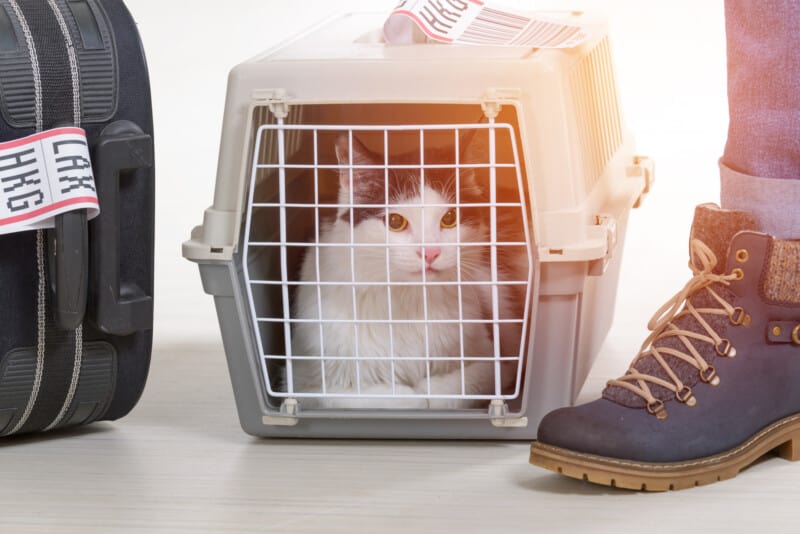
For your flight, place your dog’s travel bed in the kennel and cover it puppy pads — just in case of an accident.
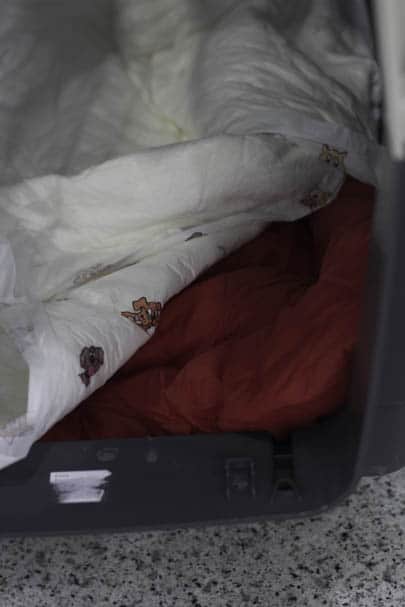
5. Don’t Give Your Pet A Sedative
Unless your veterinarian recommends it, don’t give your pet a sedative for the flight. Tranquilizers can interfere with the ability to regulate body heat at high altitudes.
If you’re concerned your pet experiencing anxiety, consider calming drops, a vest designed to calm your pet, or CBD oil or treats. (Be sure to check the airlines regulations before flying with CBD oil.)
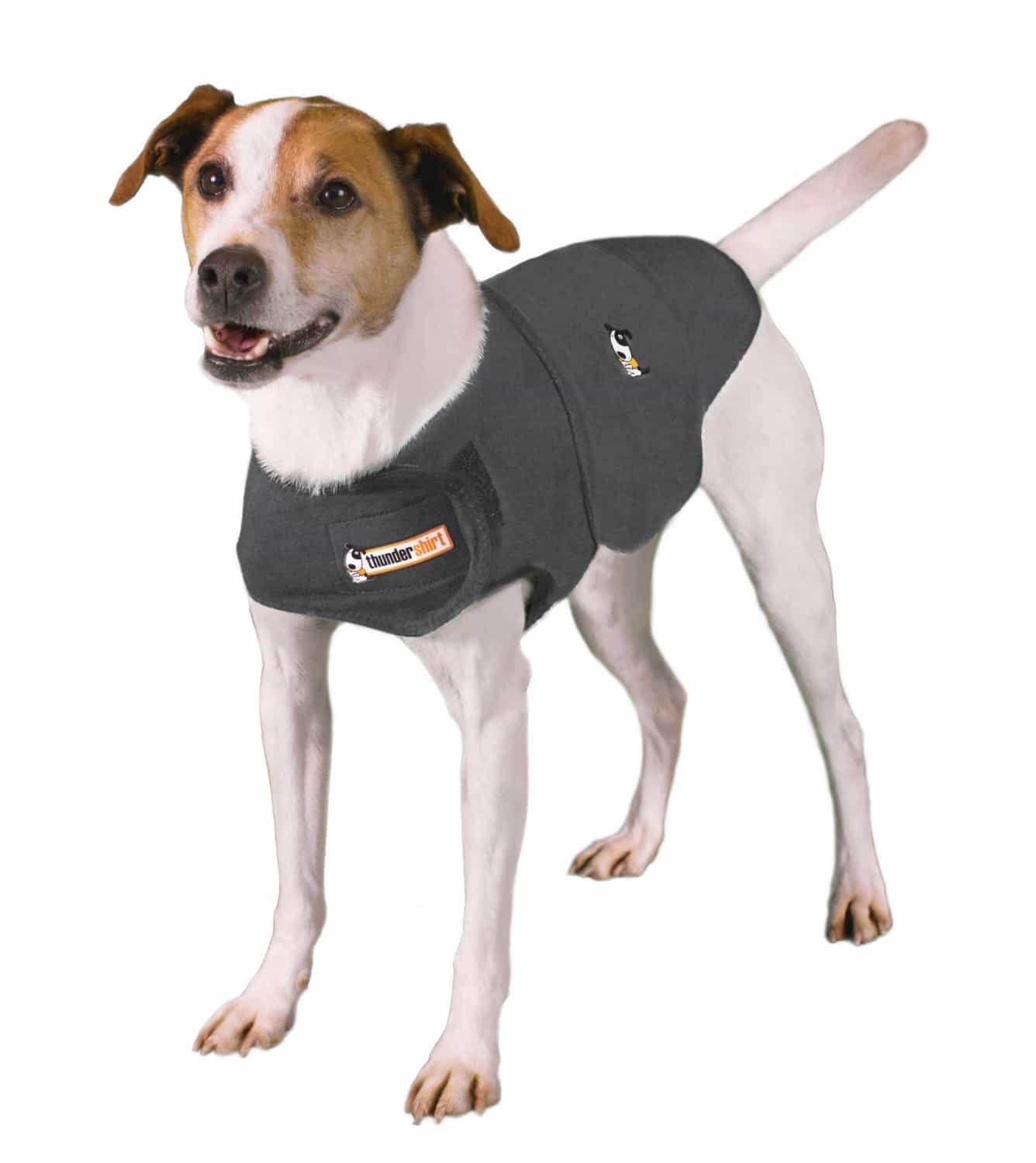
6. Ask To Board Early
Flying with a pet could make you eligible for early boarding on some airlines – just ask one of the gate agents. Getting yourself and your pet settled before your flight can take some time, and having a few extra minutes will help you both remain calm.
READ MORE ⇒ Flying With Your Cat For the First Time
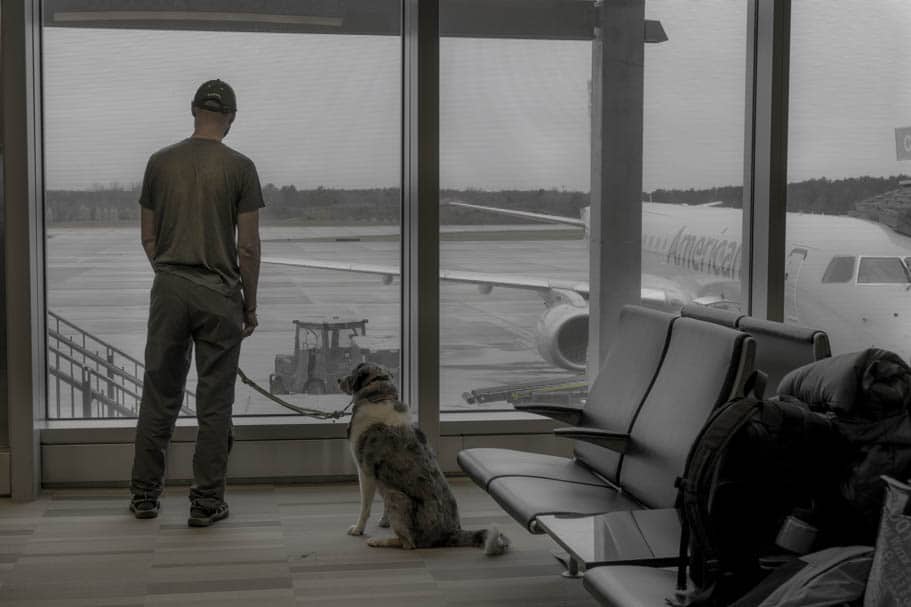
7. Keep Your Pet’s Health Documents Handy
Each airline has its own requirements for pets flying in the cabin and in cargo. Determine which documents your airline requires and keep them in a place you have easy access to so that when you’re asked by various staff members, you don’t struggle to find them.
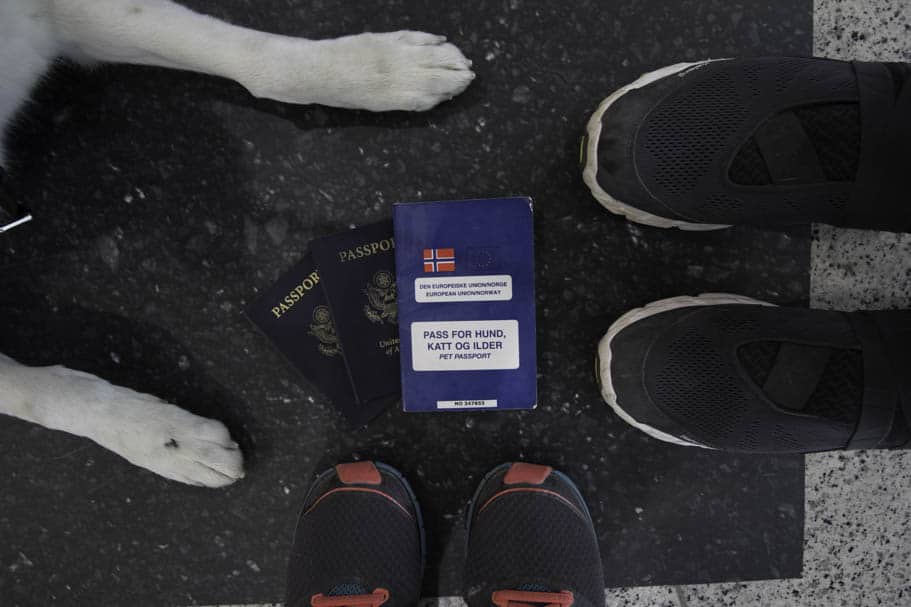
8. Locate Pet Relief Areas Before You Fly
Airports are required to offer pet relief areas. Before your flight, map out the closest one to your terminal for efficient pet potty breaks during layovers. You can also ask the staff at the airline gate.
It’s possible that your pet won’t use the pet relief are since the locations are often indoors and on outdoor carpet. Or maybe he just likes to break the rules. Either way, keep some puppy pads handy, in case your pet decides to go somewhere outside of the designated area.
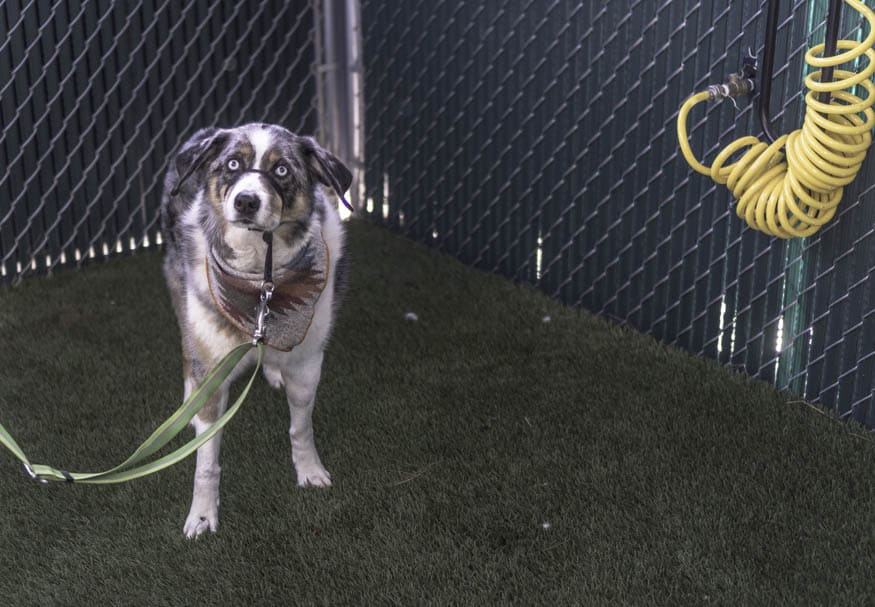
9. Bring A Chew Toy For Take Off & Landing
Like humans, pressure will build up in your pet’s ears during take off and landing. You might see your pet batting at her ears or shaking her head frequently. Give her a chew toy or hard, chewy treats to help relieve any discomfort.
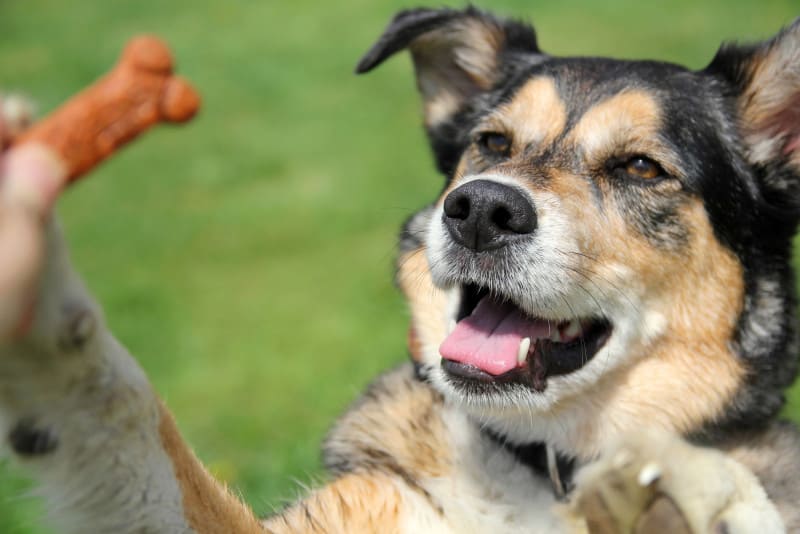
Follow these tips, and flying with your pet will be safe and comfortable for you both.
(Visited 40,293 times, 1 visits today)



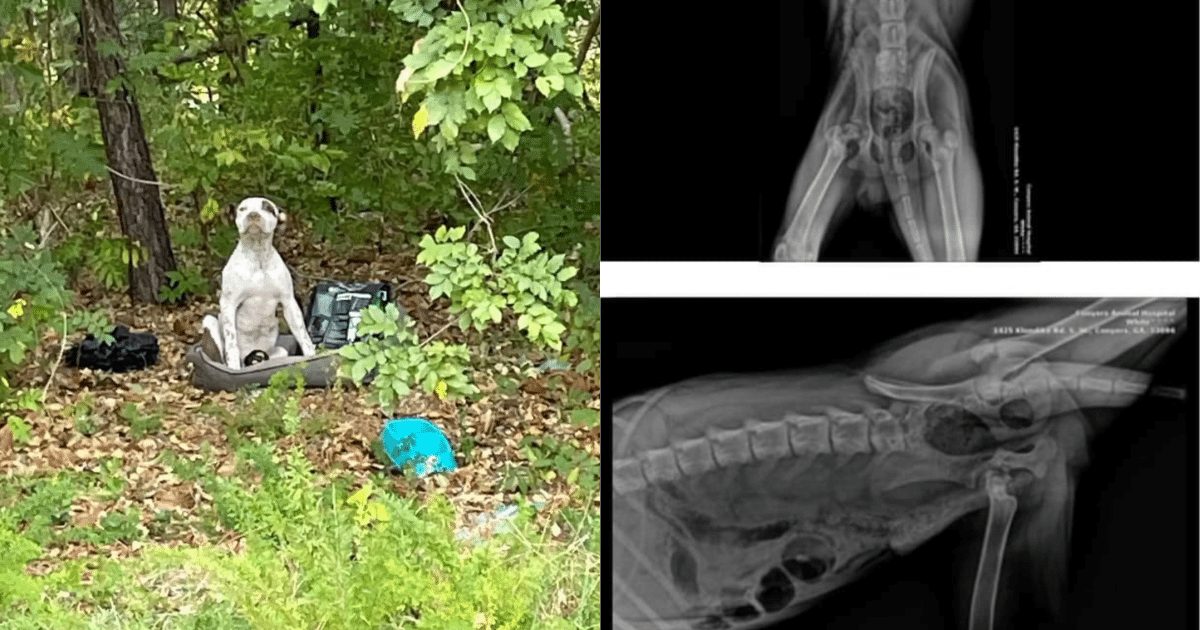
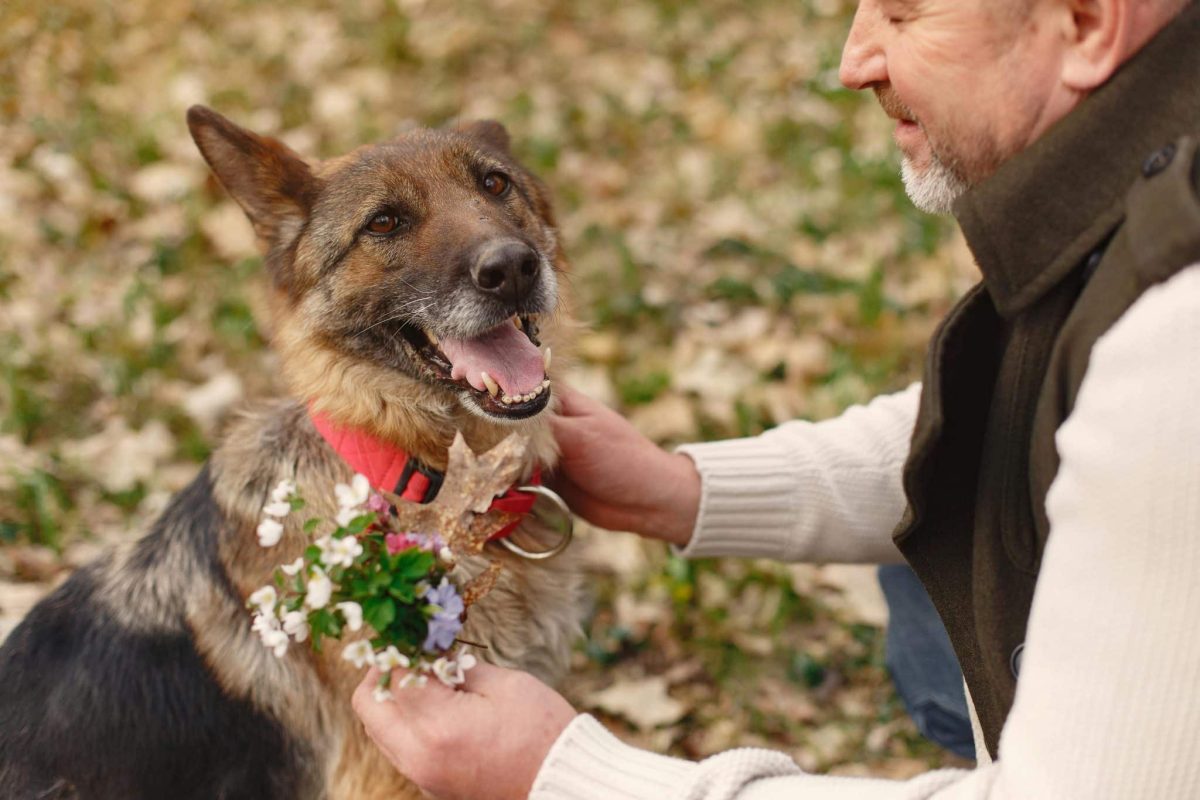

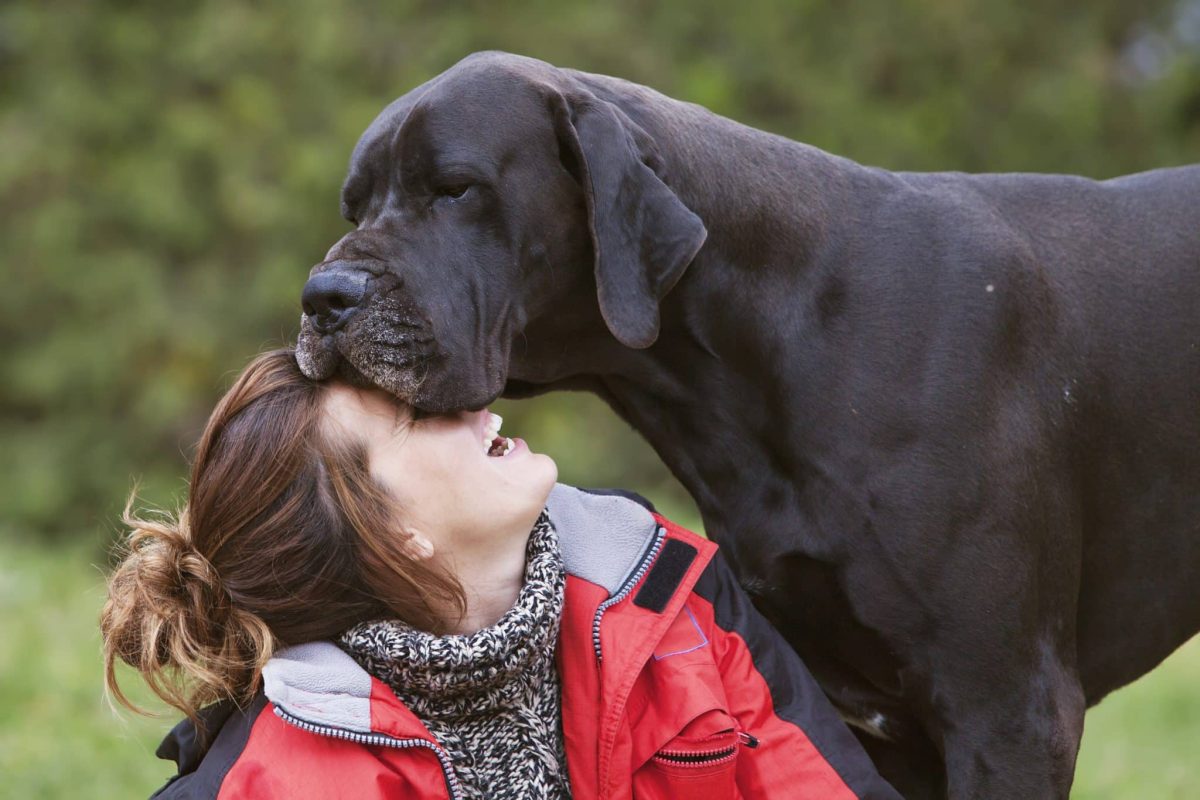



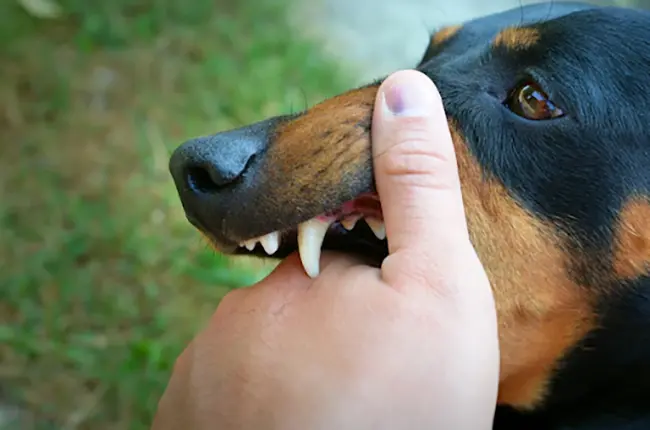

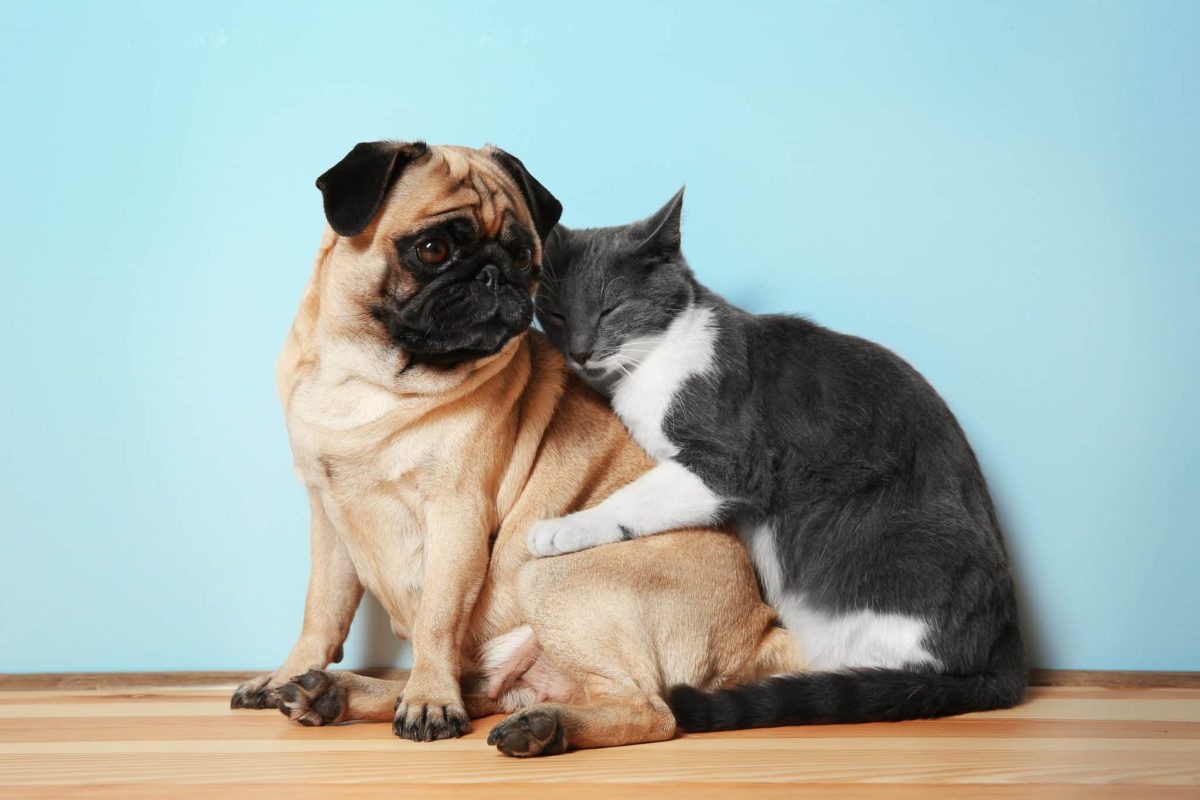




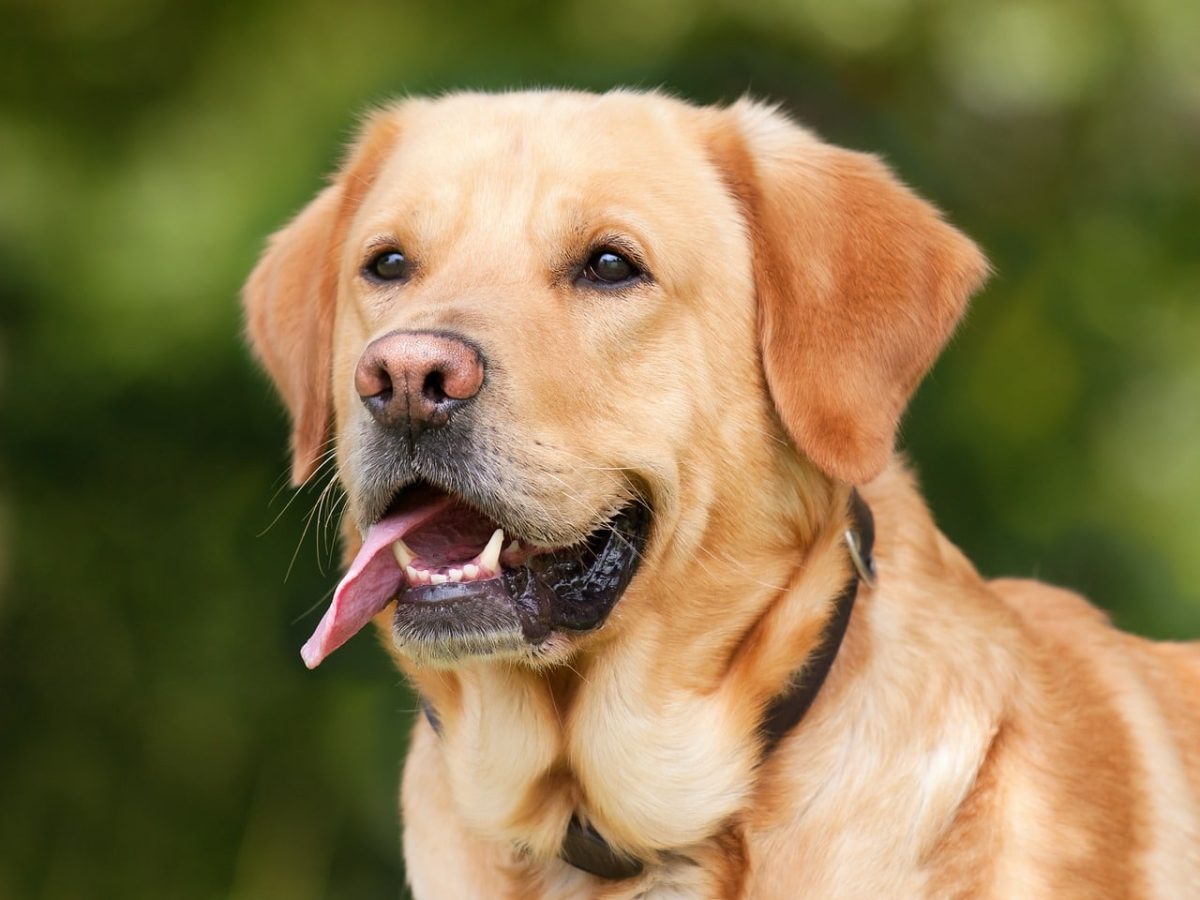

 English (US) ·
English (US) ·